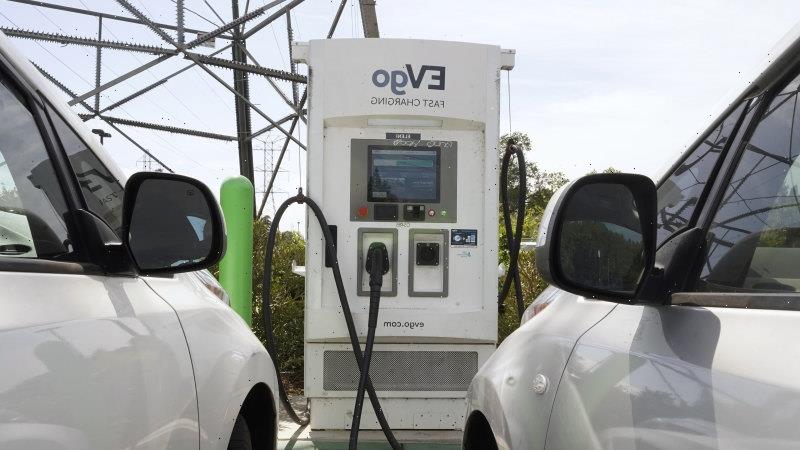Opposition Leader Matthew Guy has promised to pause Victoria’s contentious electric vehicle tax and invest $50 million to boost the uptake of low-emissions cars if elected in November.
Electric and plug-in hybrid vehicle motorists in the state are charged a road usage tax of 2.6¢ or 2.1¢ for every kilometre they drive based on annual odometer readings.
The Coalition has made an election pledge to boost electric car uptake in Victoria.Credit:AP
Before the tax came into effect, leading carmakers such as Volkswagen and Hyundai joined 25 organisations, including Environment Victoria and the World Wildlife Fund, calling on the Andrews government to reconsider the levy, concerned it would discourage ownership of electric vehicles in Australia.
Guy, who owns an electric vehicle, has vowed to pause the tax until 2027 at a cost of $82.2 million over the next four years. The Coalition will also build 600 charging stations across the state to boost the uptake of electric vehicles and drive down emissions. Electric car owners in Victoria have been frustrated with the lack of charging stations.
As part of the Victoria’s Agenda election series, readers told The Age they wanted to know how the government and the opposition would address the state’s greenhouse gas emissions.
One voter, Mark Jankelson, a walnut farmer from Redesdale, said climate change was his primary concern in the lead-up to the state election.
"As a farmer, we are seeing the impact,” Jankelson said. “I want to know that these issues are recognised by the parties coming in. Long term, I worry about my kids. Short term, it’s all about mitigation.”
Victoria’s greenhouse gas emissions have fallen almost 25 per cent below 2005 levels to 91.3 megatons of carbon dioxide a year, with transport responsible for 25 per cent of the state’s emissions.
Infrastructure Victoria estimates that if all vehicles on the state’s roads were zero-emissions vehicles, about 27 million tonnes of greenhouse gas emissions would be eliminated in Victoria by 2046.
There are fewer than 7000 electric vehicles registered in Victoria.
“It’s going to be better for many aspects of our lives, both for household budgets and the environment and, of course, C02 emissions,” Guy said.
In March, the state opposition committed to a net zero emissions target by 2050. It also recently announced it would go a step further than Premier Daniel Andrews and legislate 50 per cent by 2030.
The Andrews government wants half of all new cars sold in Victoria by 2030 to be zero-emission vehicles and is offering subsidies of up to $3000 to kickstart that push.
A recent survey by the Electric Vehicle Council found a majority of Australians expected their next vehicle to be electric.
The Andrews government has been contacted for comment.
The Morning Edition newsletter is our guide to the day’s most important and interesting stories, analysis and insights. Sign up here.
Most Viewed in Politics
From our partners
Source: Read Full Article

